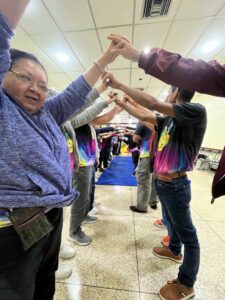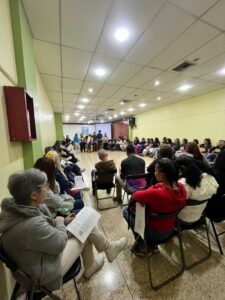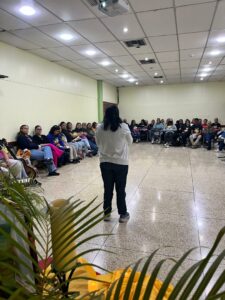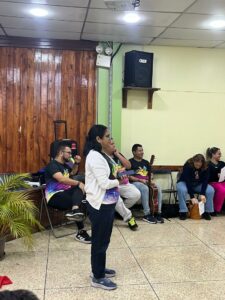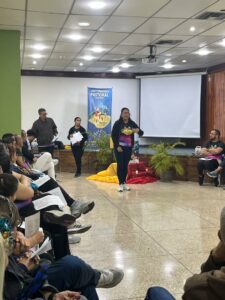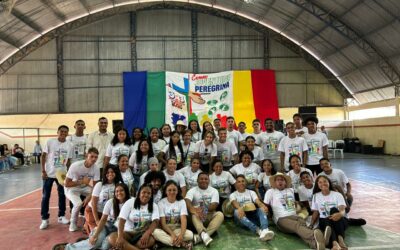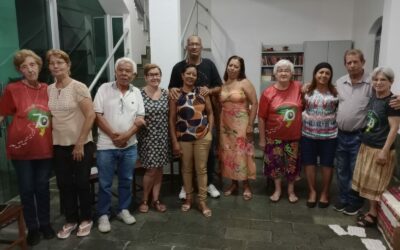On Thursday, October 30, the staff of the El Carmelo School of Caracas experienced a day of formation that invited them to look at others with eyes of kindness and to build community from joy.
The morning began with the “tunnel of self-esteem”, a dynamic organized by the Pastoral team that highlighted the importance of valuing others positively, highlighting their best gifts and talents. This was followed by the Vedruna Rosary, a creativity that repeated on each bead the phrases of St. Joaquina “Do everything for love… a love that never says enough”, phrases that St. Joaquina left as a compass to her congregation.
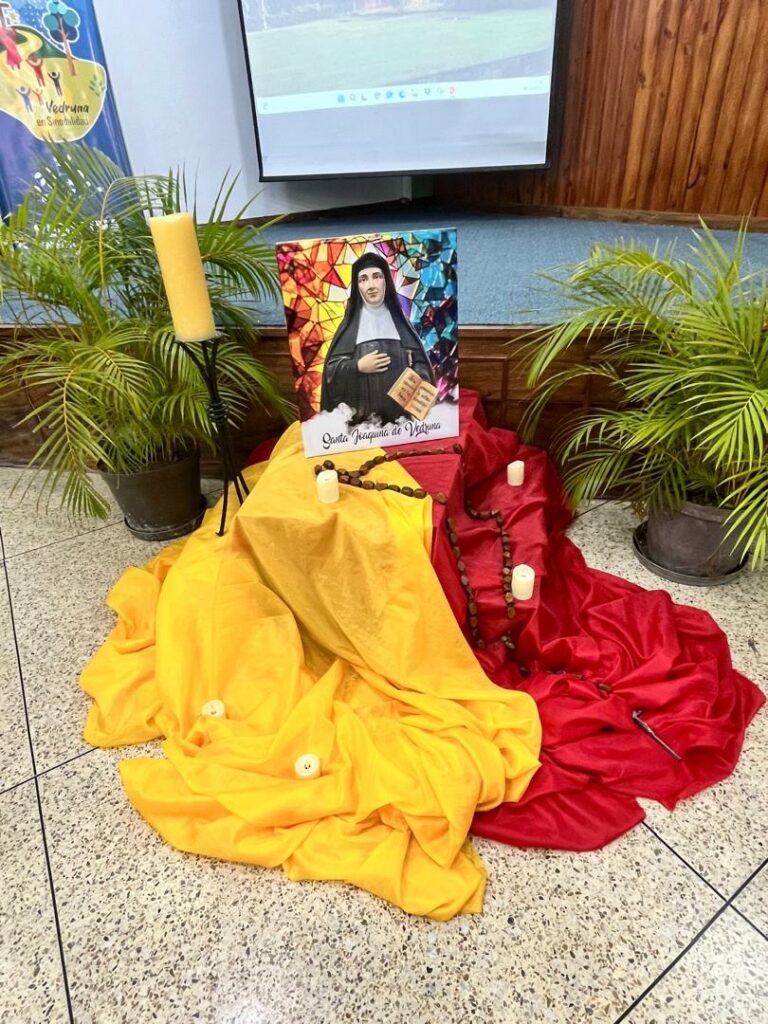
The formation began with this same compass, guided by Sr. Carmen Alicia Figuera, delegate of the Congregation in the country. Her presentation recalled that a “happy life” is not a state, but an attitude: to opt for the positive, to discover the purpose that God has for each one of us and to become architects of happiness for others.
Less than 4 months before the Bicentenary of the Foundation of the Congregation, she invited us to walk with joy as the “main virtue” and with the certainty that Vedruna love never runs out. She emphasized that living from the Vedruna Charism implies cultivating an integral spirituality that invites to welcome, faith, kindness, solidarity and tenderness. The activity “I know my weaknesses and strengths” allowed the participants to know how others see us. Reading oneself through the other gave the opportunity to examine oneself in order to grow and change. The answers to the questions “Are we happy and are others happy with me?” will help us to strengthen our relationship with ourselves and with others.
In this path of synodality, we must work together, with joy, love, learning from each other to be closer. Divided into groups, the story “The Island of Feelings” was read and analyzed. Each group chose and committed to work on one value during the month of November: harmony, love, collaboration, constancy, union and closeness.
We recognize that leading a “fulfilling” life does not depend on the absence of problems, but on the presence of attitudes that build. It implies first finding oneself, recognizing our strengths and weaknesses, valuing others, living with love and purpose. Being happy and making others happy is not an individual goal; it is a collective task that is learned and taught every day, from the classroom, the hallway or the office by example. On the synodal journey, renewing our commitment as a community, where each person feels welcomed and sent to multiply the love that – as St. Joaquina repeated – never says enough, is the attitude we can have to be truly happy and spread that happiness to those around us.
Candy Rodríguez Socas

